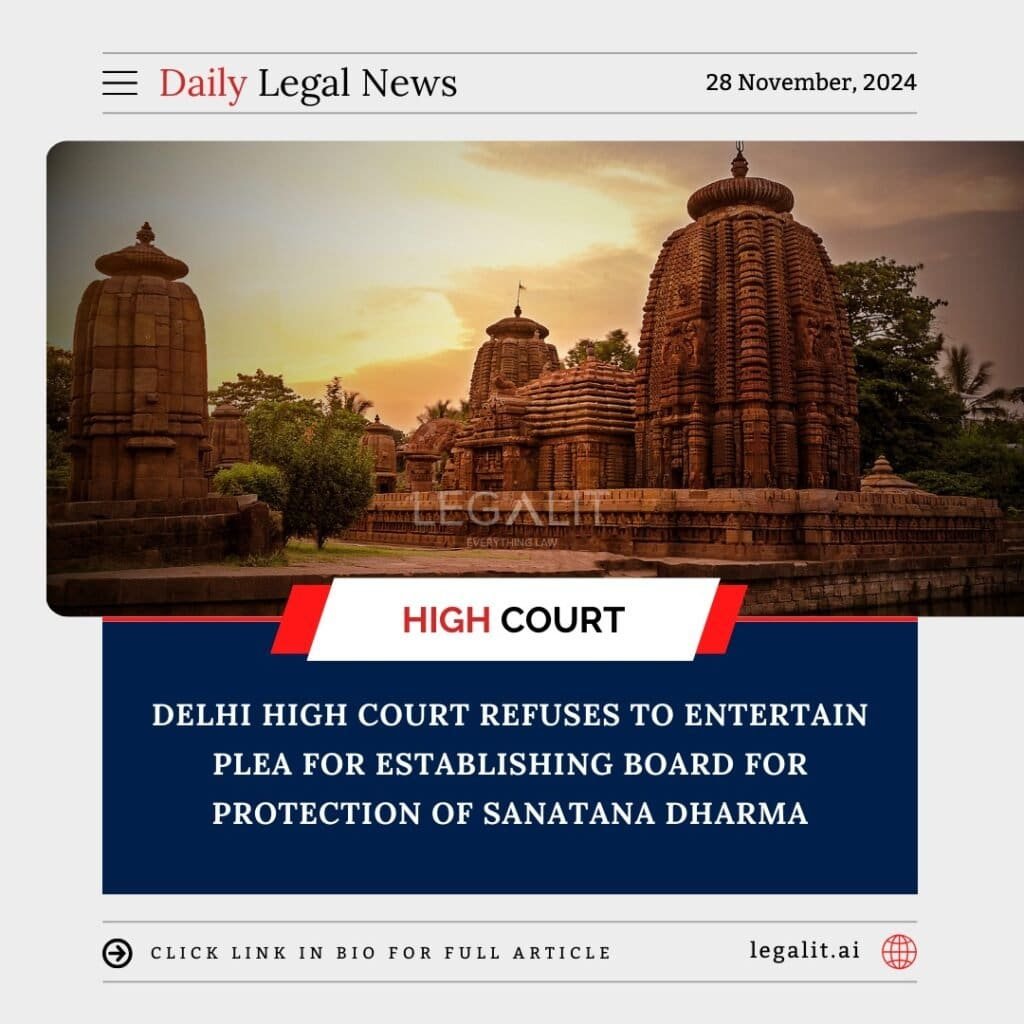
The Delhi High Court has declined to entertain a plea seeking the establishment of a statutory board to protect and promote Sanatana Dharma. The court observed that the matter falls outside its jurisdiction and suggested alternative avenues for the petitioner to pursue their concerns.
Background:
The plea sought the creation of a board to preserve the cultural and religious practices associated with Sanatana Dharma, citing the need to safeguard its traditions in modern times. The petitioner argued that such a board was essential to address issues like misrepresentation of religious beliefs and to promote awareness about Sanatana Dharma in the public domain.
Court’s Rationale:
The Delhi High Court noted that policy decisions such as the creation of a statutory body fall under the purview of the legislature and executive, not the judiciary. The bench emphasized that courts cannot mandate the formation of such boards and advised the petitioner to approach the government or relevant authorities with their proposal.
Existing Measures:
India’s constitutional framework allows religious and cultural groups to promote their practices, provided they do not infringe on public order or fundamental rights. Several independent organizations and institutions already work toward preserving various aspects of Sanatana Dharma through educational and cultural initiatives.
Conclusion:
The court’s decision reinforces the principle that judiciary should not intervene in matters best addressed by legislative or executive processes. While the plea for establishing a Sanatana Dharma board was dismissed, the petitioner has the option to seek support through other constitutional means.